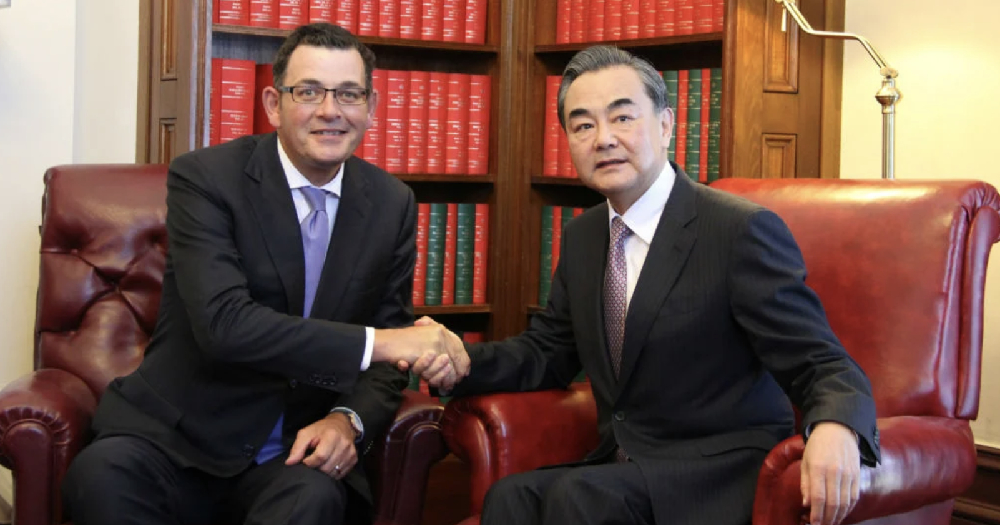Follow us on Telegram for the latest updates: https://t.me/mothershipsg
Beijing has vowed to "respond resolutely" if Australia does not withdraw its "erroneous decision" to cancel two Belt and Road Initiative (BRI) accords between China and the Australian state of Victoria.
Called for Australia to immediately redress its mistakes
Calling Canberra's decision "political manipulation and irrational behaviour", Chinese foreign ministry spokesperson Wang Wenbin said at a press briefing on Thursday, Apr. 22, that the BRI always follows "the principles of extensive consultation, joint contribution and shared benefits".
He urged Australia to "set aside cold war mentality and ideological bias", immediately "redress mistakes" and avoid making bilateral relations worse.
Wang also rejected Canberra's claim that the decision was made as the projects were inconsistent with Australia's foreign policy, rather than targeting any specific country.
He claimed that two out of the four agreements that Australia cancelled, after reviewing over 1,000 agreements, were signed with China.
The Chinese embassy in Australia also said the move is "unreasonable and provocative", and shows that Canberra has "no sincerity in improving China-Australia relations".
"It is bound to bring further damage to bilateral relations, and will only end up hurting itself," it added.
Besides two BRI agreements between the Victoria government and China, Canberra has also revoked separate agreements with Syria and Iran, citing inconsistency with Australia's foreign policy, according to Financial Times.
Plummeting relations
Australia's move and China's response marked the latest episode in a series of disputes that have escalated tensions between the two countries.
China is Australia's largest trading partner, but relations between both nations had soured over the past few years as Canberra took steps to resist what it saw as Beijing's increasingly assertive foreign policy.
Following Australia's move to formally ban Huawei from its 5G network, and to call for investigations into the origins of Covid-19, China retaliated by slapping a series of tariffs on Australian exports such as wine, beef and barley.
Director of the Australia China Relations Institute at University of Technology Sydney, James Laurenceson, told ABC News that Australia's decision was meant as a signal to Beijing.
While Canberra could have simply let the "non-legally binding agreement" lapse in time and not approve new agreements, they decided to "blow it up and send a message to Beijing", he said.
And should Beijing decide to make good its threat of responding "resolutely" if Canberra does not revoke its plan, it would be yet another signal to other BRI partner countries that might be thinking of making similar moves, he added.
Top image of Chinese Foreign Minister Wang Yi and Victorian Premier Daniel Andrews via Xinhua
If you like what you read, follow us on Facebook, Instagram, Twitter and Telegram to get the latest updates.
